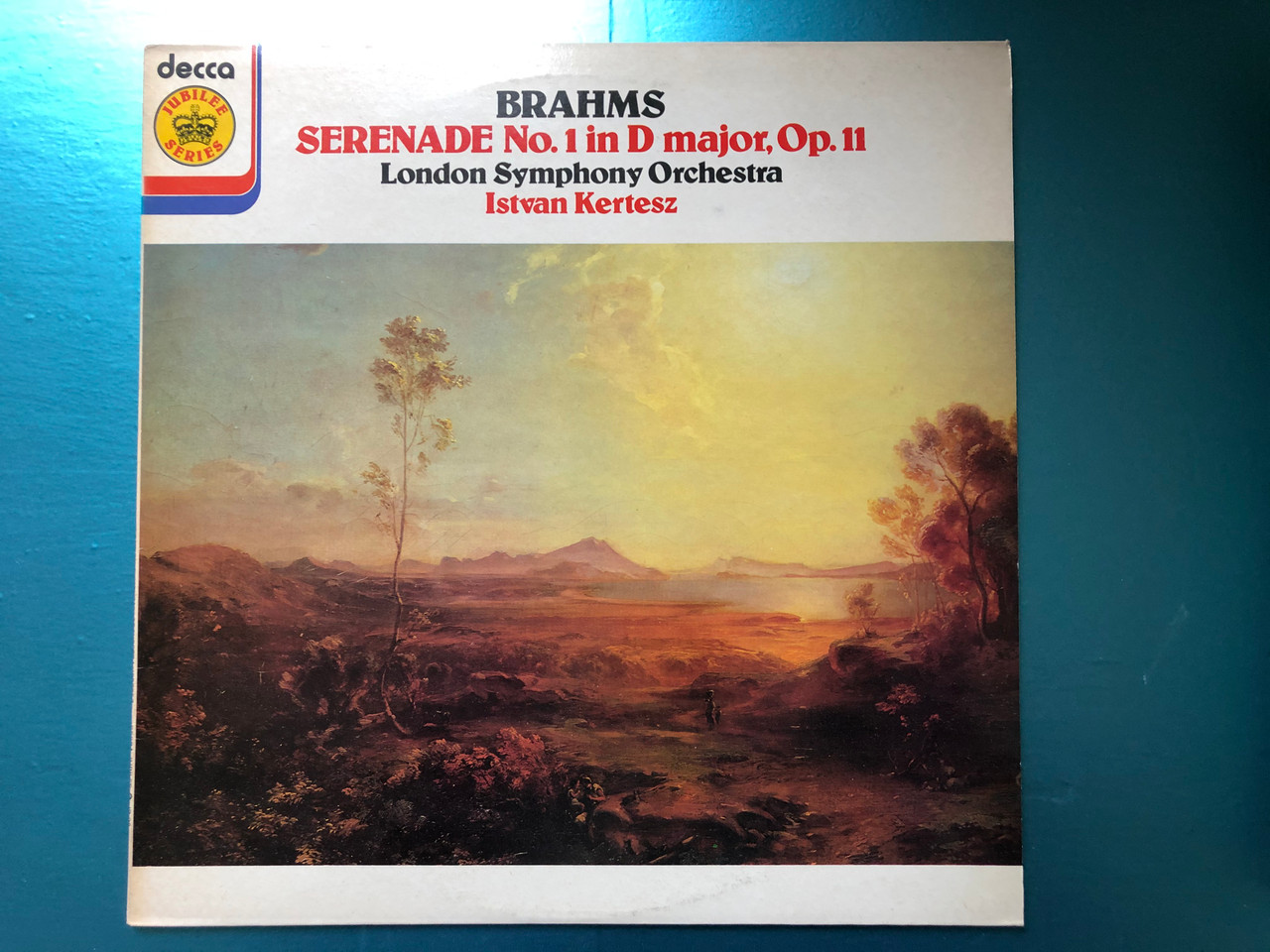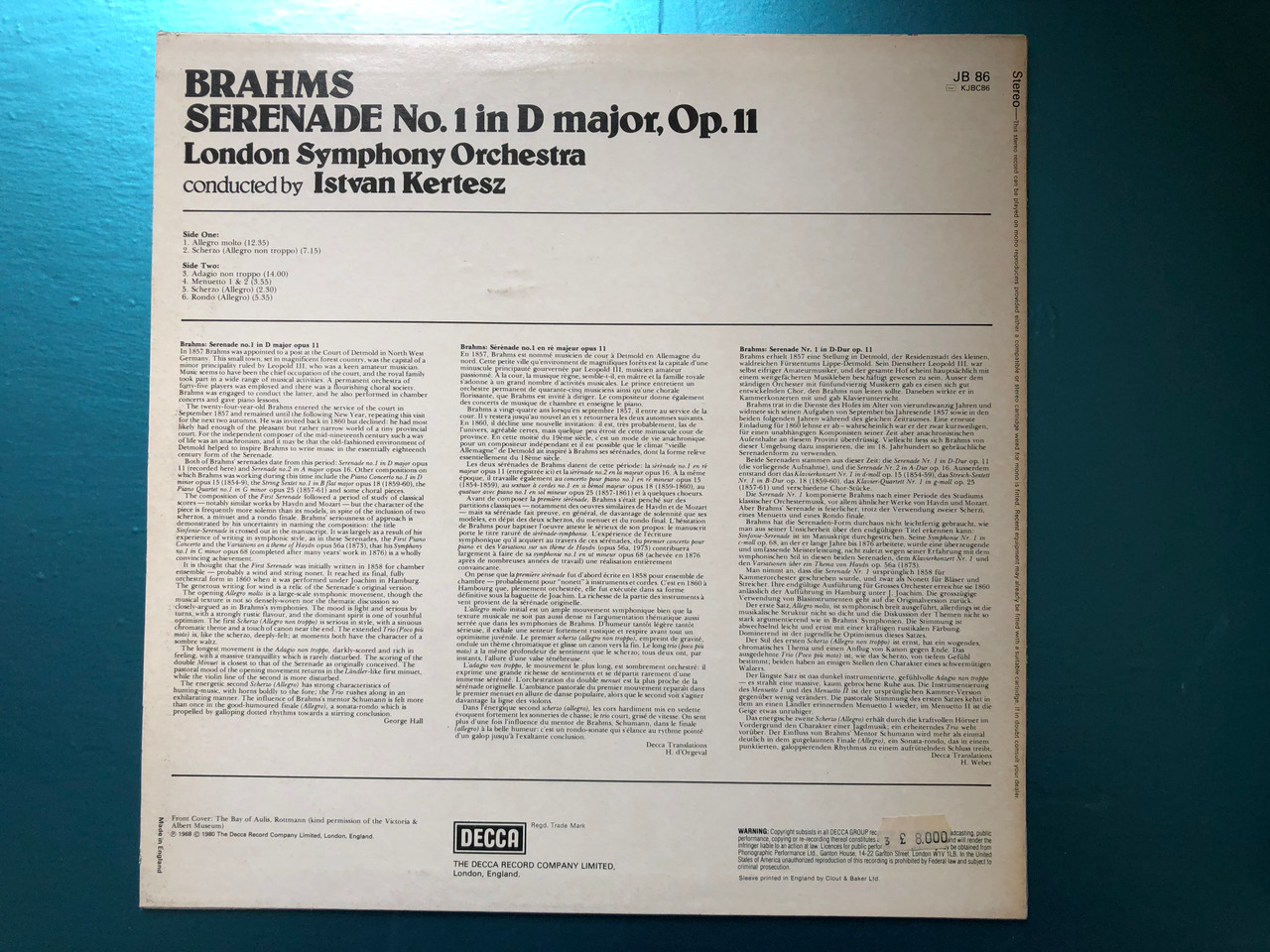Description
Brahms – Serenade No. 1 In D Major, Op. 11 / London Symphony Orchestra, Istvan Kertesz / Decca Jubilee Series / Decca LP 1980 Stereo
JB 86
The two Serenades, Op. 11 and 16, represent early efforts by Johannes Brahms to write orchestral music. They both date from after the 1856 death of Robert Schumann when Brahms was residing in Detmold and had access to an orchestra.
Brahms had a goal of reaching Ludwig van Beethoven's level in writing symphonies, and worked long and hard on his first symphony, completing it only in 1876 when he was 43 years old. As preliminary steps in composing for orchestra, he chose early on to write some lighter orchestral pieces, these Serenades. The second was first sent to Clara Schumann, who was delighted by it.
The first serenade was completed in 1858. At that time, Brahms was also working on his Piano Concerto No. 1. Originally scored for wind and string octet and then expanded into a longer work for chamber nonet, the serenade was later adapted for orchestra; Brahms completed the final version for large orchestra in December 1859. In the orchestration of the Concerto Brahms had solicited and got a great deal of advice from his good friend Joseph Joachim. For this Serenade Joachim also gave advice, although to a lesser extent. The first performance of the Serenade, in Hanover on 3 March 1860, "did not go very well" in Brahms's opinion, but evidently the unusually large audience of 1,200 did not notice any mistake during the performance. At the end, applause "persisted until I came out and down in front." After every piece in the concert "the audience was shouting." This was a vastly better reception than the Piano Concerto had in either of its first two performances. But at its third performance, 24 March, also in Hamburg, it had been a success, perhaps not to the same degree as the Serenade.
The Serenade consists of six movements and lasts around 45 minutes.
- Allegro molto (D major)
- Scherzo. Allegro non troppo (D minor) – Trio. Poco più moto (B♭ major)
- Adagio non troppo (B♭ major)
- Menuetto I (G major) – Menuetto II (G minor)
- Scherzo. Allegro (D major) – Trio
- Rondo. Allegro (D major)
Tracklist:
| Serenade No. 1 In D Major, Op. 11 | |||
| A1 | 1. Allegro Molto |
12:35 | |
| A2 | 2. Scherzo (Allegro Non Troppo) |
7:15 | |
| B1 | 3. Adagio Non Troppo |
14:00 | |
| B2 | 4. Menuetto 1 & 2 |
3:55 | |
| B3 | 5. Scherzo (Allegro) |
2:30 | |
| B4 | 6. Rondo (Allegro) |
5:35 |
- Composed By – Brahms
- Conductor – Istvan Kertesz
- Liner Notes – George Hall (4)
- Liner Notes [French translation] – H. d’Orgeval
- Liner Notes [German translation] – H. Weber
- Orchestra – London Symphony Orchestra
- Painting [The Bay of Aulis] – Rottmann
























